World Vision Australia’s first 1,000 days initiative drives healthier futures in Uganda
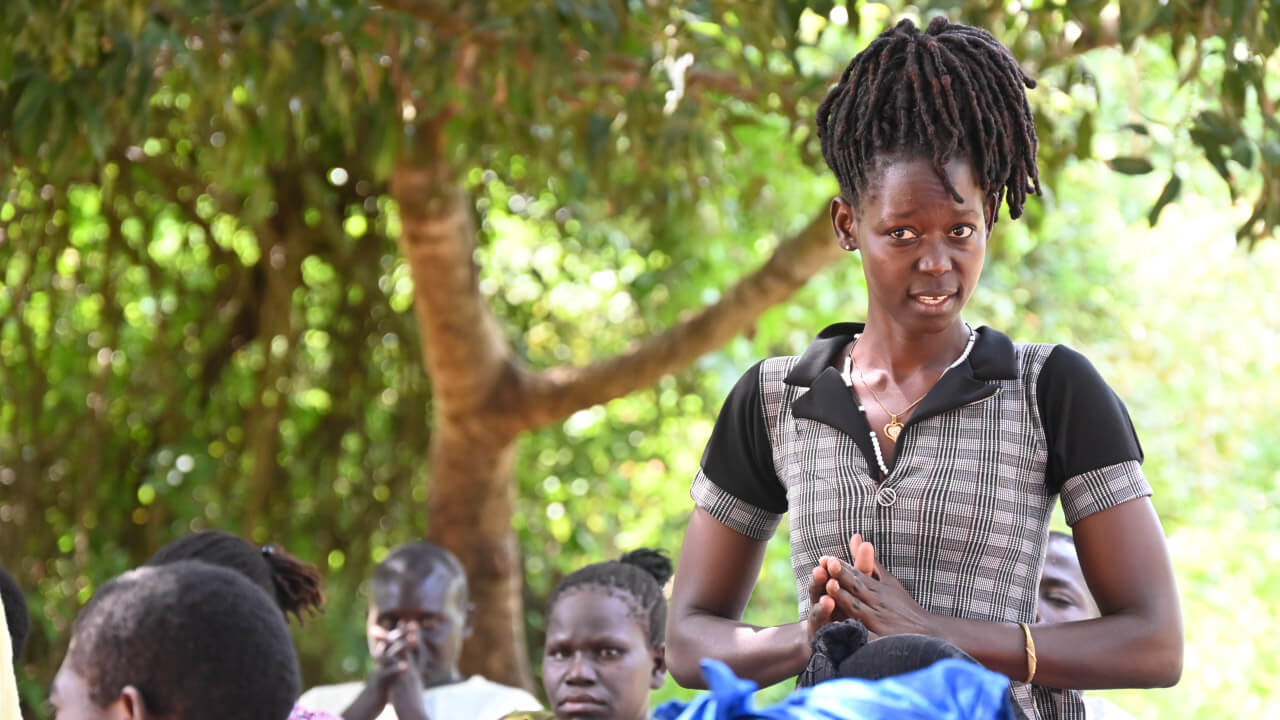
The first 1,000 days of life – known as the golden window – are a critical period when optimum nutrition is essential for brain development, cognitive development, future health, and overall wellbeing of a child. This time not only shapes the future of the individual, but also contributes to society’s broader health and prosperity. Malnutrition during this phase, in unaddressed, can cause irreversible damage, hindering both physical and cognitive development. Unfortunately, malnutrition remains a significant challenge in many parts of sub-Saharan Africa, where maternal anaemia and childhood stunting are widespread.
In Uganda, addressing malnutrition is key to improving the health and resilience of future generations. World Vision Australia‘s Health and Nutrition for All (HANA) initiative focuses on maternal and child nutrition during this crucial period, aiming to improve long-term health outcomes.
Small investments in nutrition lead to lasting benefits, enhancing individual well-being and strengthening entire communities.
Community-led initiatives to tackle malnutrition and improve sanitation
In northern Uganda, communities are driving innovative efforts to combat malnutrition and poor sanitation. By introducing bio-fortified crops and kitchen gardens, along with targeted social behaviour change messaging on health and nutrition through Nurturing Care Groups, households are finding better ways to prepare nutritious meals. Crops such as orange-fleshed sweet potatoes and iron-rich beans are helping farmers grow more nutrient-dense food, addressing key deficiencies in iron and iodine—both vital for child development.
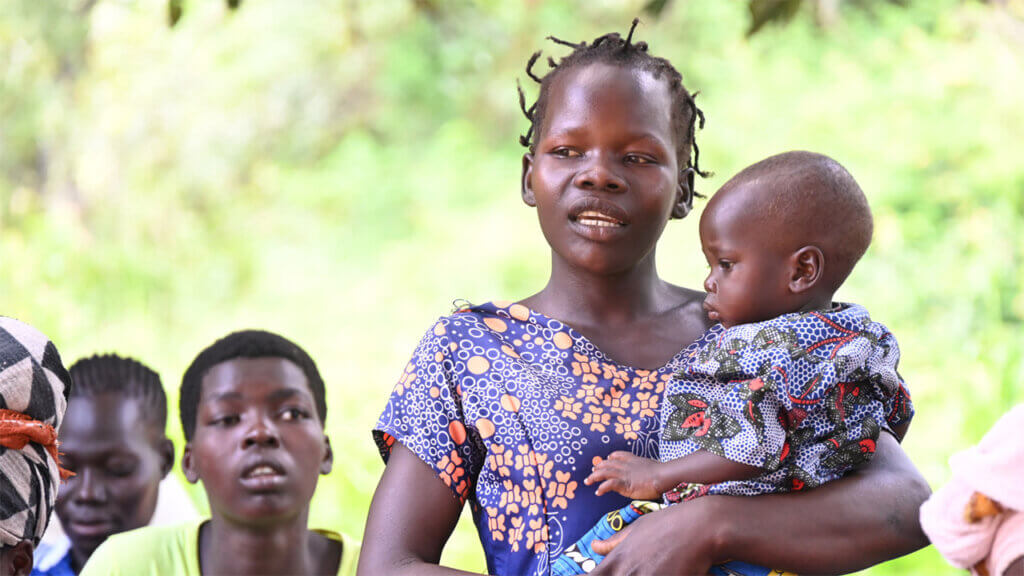
The Nurturing Care Group approach equips women with the skills to maximise the potential of locally available foods, shifting traditional perspectives on food preparation and health. These initiatives not only improve household nutrition but also foster long-term well-being by transforming attitudes towards health, sanitation, nutrition and livelihoods.
Access to healthcare remains a major challenge across sub-Saharan Africa, with many communities unable to reach essential services. The Health and Nutrition for All initiative, in collaboration with Uganda’s Ministry of Health, focuses on creating sustainable improvements in healthcare access. The program supports caregivers and families, particularly those with children living with disabilities, and strengthens local health systems by providing healthcare workers with the tools and training needed to improve nutrition and care for children under five and pregnant and lactating women, including those with disabilities.
“Through supporting families to adopt healthier practices in Nurturing Care Groups, introducing bio-fortified crops, and improving access to clean water by constructing boreholes, we’ve seen healthier families and a stronger community,” Gloria, a Health and Nutrition for All program officer.
Women leading community-driven efforts
Women are at the forefront of these community-led initiatives. Health workers and Village Health Teams offer vital guidance on food composition, preparation and handling techniques, and promote the use of kitchen gardens to support household nutrition. Peer-led education drives behavioural change, and in northern Uganda, women are sharing essential knowledge to improve the health of their families and communities.
One local health worker explained, “The bio-fortified crops and kitchen gardens are equipping women with the tools they need to ensure their families’ health. It’s a collective effort transforming how we think about nutrition.”
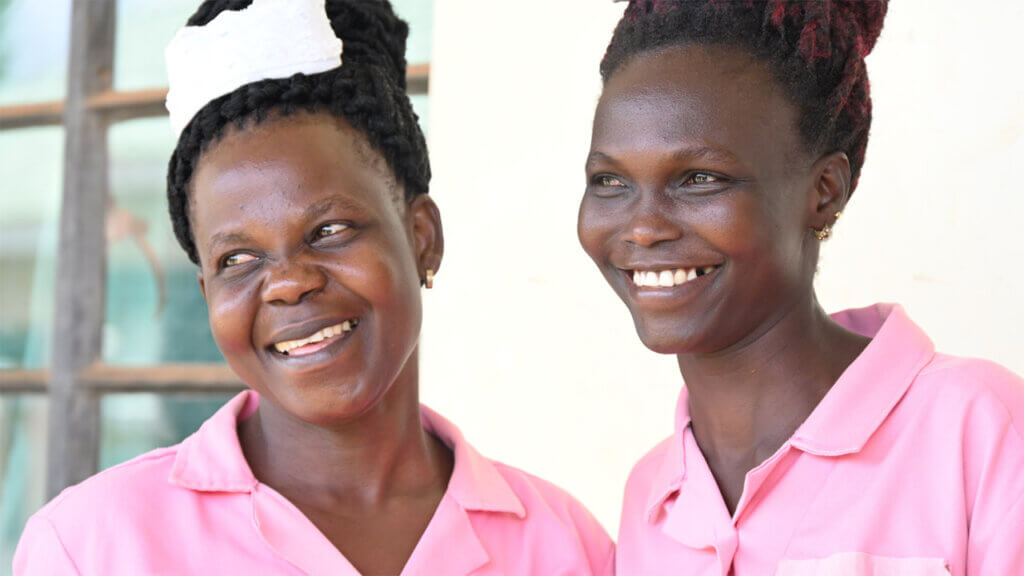
The first 1,000 days are critical for a child’s development. The Health and Nutrition for All initiative supports mothers with the knowledge and tools they need to give their children the best start in life. With guidance on nutrition, hygiene, and breastfeeding, families are adopting healthier practices that will benefit them for years to come.
One mother shared, “The advice I received has given me confidence that I’m giving my baby the best possible care from the very beginning.” These early interventions are already delivering results, with fewer cases of stunting and improved child health in northern Uganda.
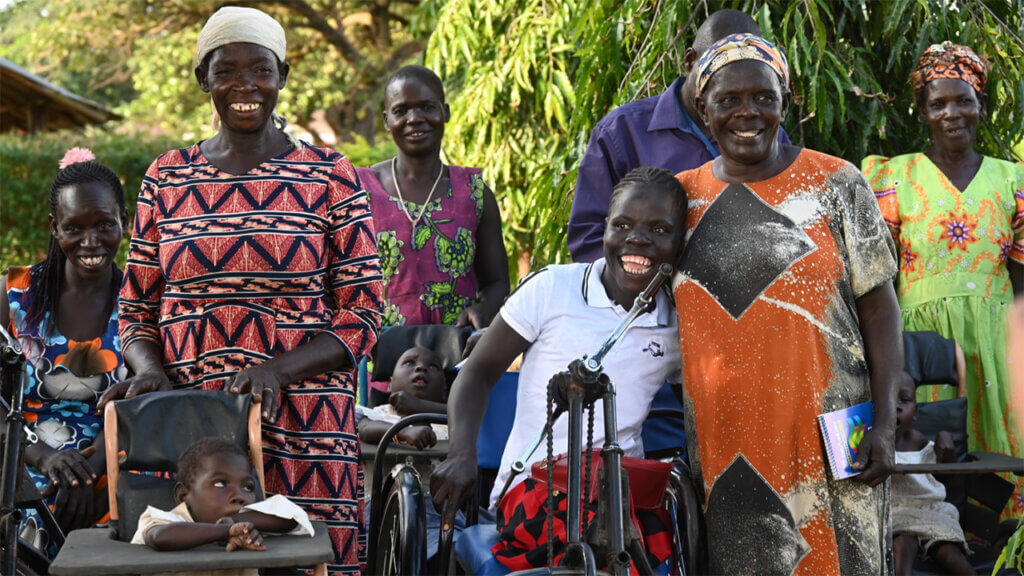
The initiative also addresses the specific needs of children with disabilities, ensuring inclusive access to essential services. This includes providing assistive devices like wheelchairs, which enhance mobility and improve quality of life. By integrating disability support into health and nutrition programs, the initiative ensures that no one is left behind.
“Assistive devices have brought happiness and independence to children with disabilities, so they can participate freely in community life,” said Dorah, a World Vision Gender and Disability Inclusion Officer.
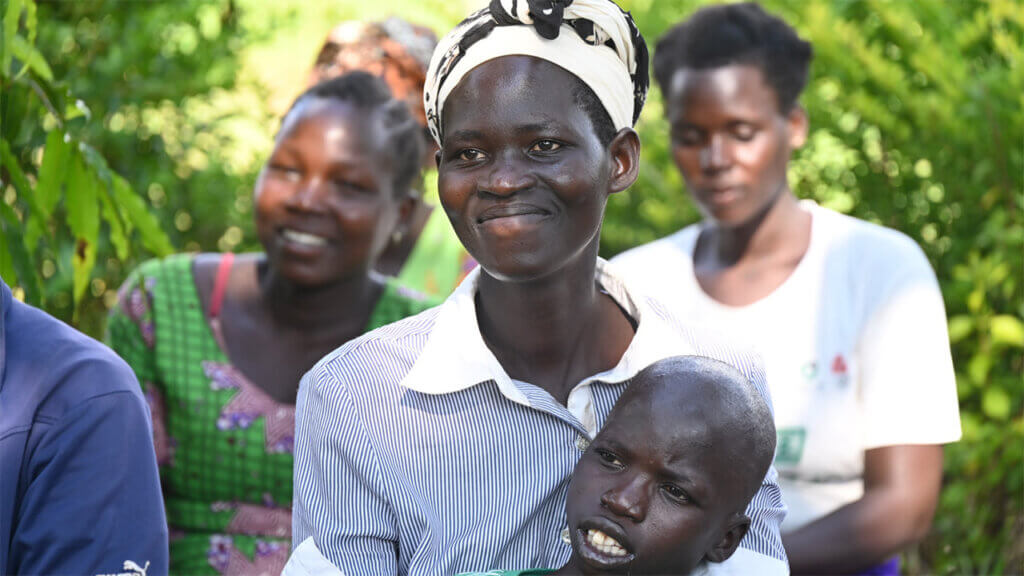
Achievements and looking ahead
After four years, the Health and Nutrition for All program has delivered significant impacts:
- 14 health facilities have been accredited, improving access to quality healthcare at the local level.
- 16 villages have been declared open defecation-free, thanks to local leaders and community-driven water, sanitation, and hygiene efforts.
- National feeding guidelines for children with disabilities have been developed, ensuring nutrition programs are inclusive and accessible.
- Families are experiencing reductions in illness and violence as improved health practices and access to clean water foster healthier, more peaceful communities.
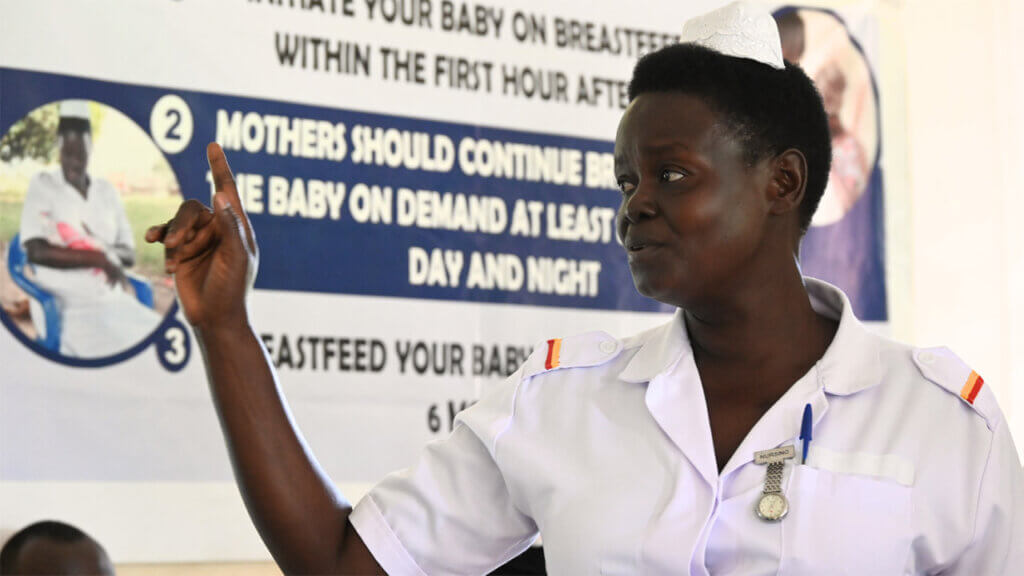
World Vision Australia’s initiative is laying the groundwork for long-term health and resilience in northern Uganda. By investing in locally led solutions, the program is supporting sustainable improvements in healthcare access and enhancing the well-being of communities for generations to come. These early interventions and community-driven approaches are building healthier lives and brighter futures for everyone involved.
As Carol, the Project Coordinator, noted, “The project has achieved remarkable success in improving maternal and child health outcomes. Communities have embraced better health practices, supported persons with disabilities, and are advocating for improved health systems. I am confident that even after the project concludes, the communities will continue practising these behaviours.”
Learn more about the Judith Neilson Foundation‘s partnership with World Vision Australia, co-funded by the Australian Government through the Australian NGO Cooperation Program here: https://www.judithneilsonfoundation.org/partners/world-vision-australia/